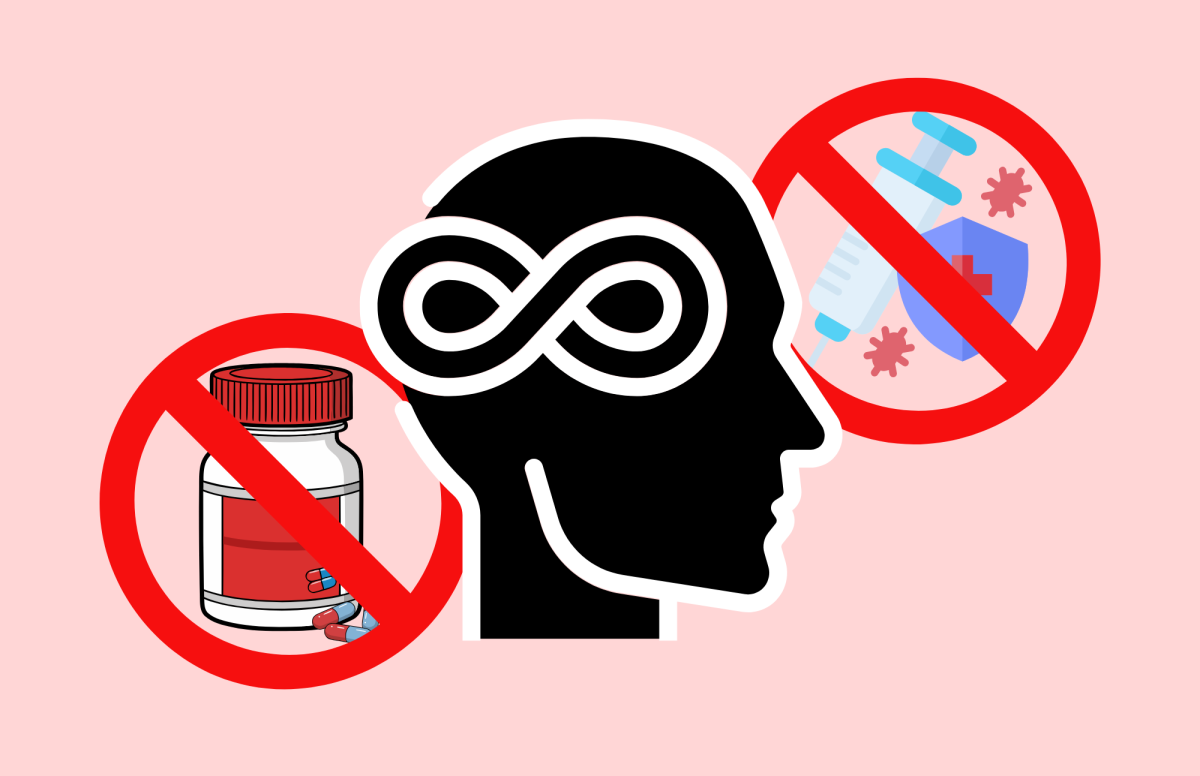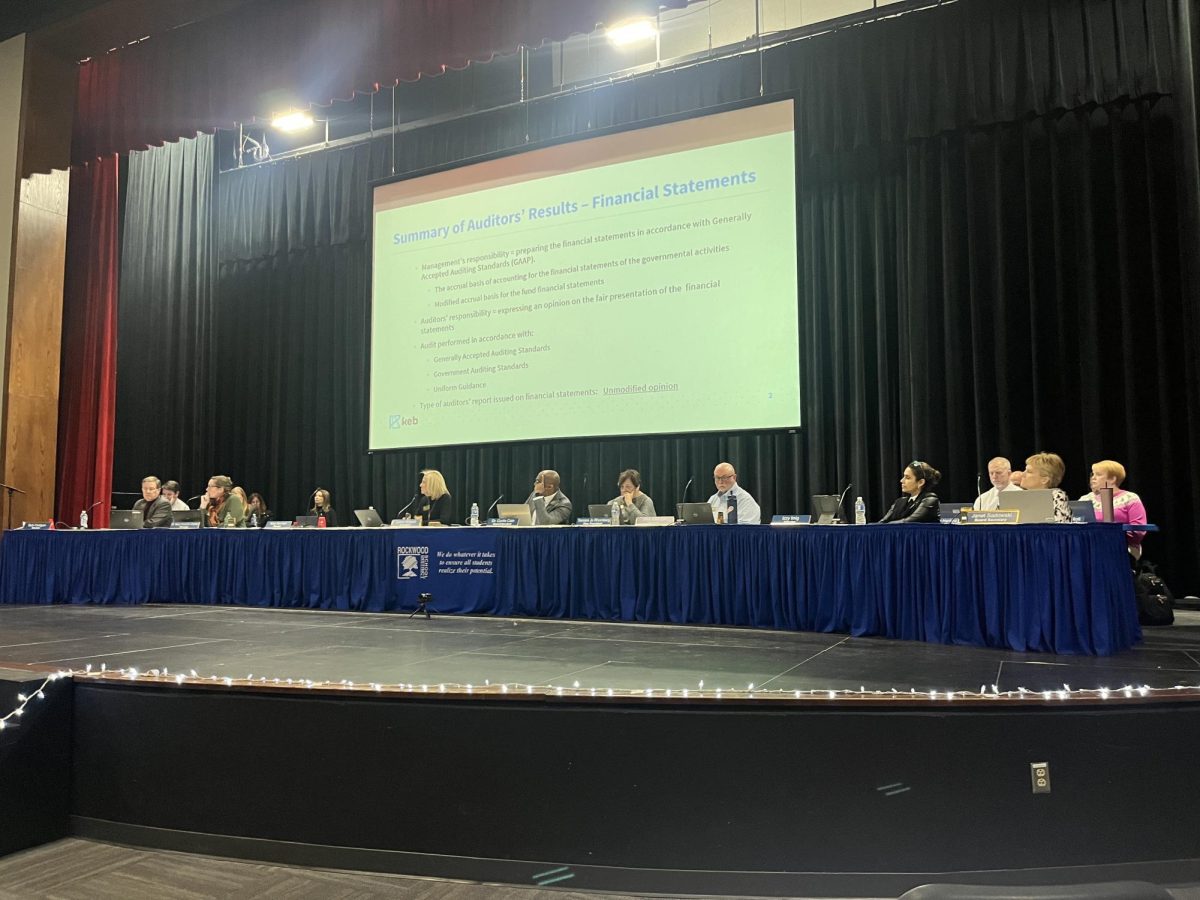Between 2022 and 2023, energy drink sales increased from $16.8 billion to $20.2 billion. Total energy drink sales globally reached $193 billion in 2023 according to Statistica. Many sales were to teenagers.
The National Institute of Health reports energy drinks are heavily advertised as products that provide energy and improve physical and intellectual performance — benefits that especially appeal to students.
The two main ingredients responsible for this are caffeine and sugar.
While most people understand the potential negative impacts of those two ingredients, many studies show there are also some benefits.
Katie Kage, associate professor of nutrition at University of Central Missouri and a registered dietitian believes having an energy drink occasionally can be beneficial.
“Using energy drinks to help study, to provide a boost before athletic practice or to allow us to stay up late hanging out with friends can be OK on occasion,” she said.
Lafayette athletic trainer Eric Doherty said it is not uncommon for athletes to consume energy drinks.
“There are many studies done on the ergogenic effects of caffeine. Most studies conclude beneficial attributes to performance,” Doherty said.
Energy drinks have also been shown to have academic benefits.

Kage said the components of energy drinks help with short-term memory and help teens focus and pay attention.
Junior Akilesh Rajan said he drinks around one or two 16-ounce cans of Sparkling Ice with caffeine a day to keep him awake and focused at school.
“If I don’t drink [an energy drink] in the morning, I might genuinely fall asleep in class. If I have a test that day, I’ll drink one because I want to be energized,” Rajan said.
While energy drinks provide a temporary energy boost, the CDC has also said energy drinks can cause health complications.
One of the main ingredients that cause complications is caffeine.
“Physiologically, caffeine can directly affect the central nervous system to increase alertness, arousal and diminish fatigue,” Daniel Credeur, associate teaching professor in nutrition and exercise physiology at University of Missouri said.
But, Credeur said teens should avoid energy drinks and believes there should be age restrictions on their sales to teens.
“Caffeine has an addictive property. Your body adjusts over time to become dependent on that routine dose. Fortunately, small doses do not appear to pose a major health threat in most adults, but these amounts could be unsafe for adolescents,” he said.
Currently, the CDC said there are no age restrictions on the purchasing or consumption of energy drinks in the U.S.
Nationwide, 75% of school districts don’t have restrictions on any type of energy drinks sold in high schools.
Additionally, the American Beverage Association agreed to not market energy drink products to K-12 schools in 2014.
It is recommend by CDC that children and adolescents should not consume more than 100 milligrams of caffeine a day, which is equal to about one cup of coffee.
A 12 ounce cola has up to 35 milligrams of caffeine. An eight-ounce energy drink can contain more than five times that amount.
In addition, the NIH said energy drinks can have negative health effects like dehydration, anxiety/depression, cardiovascular complications like high blood pressure, faster heart rate and sleep problems.
Credeur said energy drinks should be avoided because of the potential for addiction, just like how addiction exists with tobacco, alcohol and cannabis.
This is why senior Julia Cundy said she avoids energy drinks.
She said she doesn’t like the taste and didn’t want to become dependent on them, since she knows how addictive they are.
“I’m scared of becoming dependent on it and waking up in the morning and not being able to function,” Cundy said.
The second dangerous ingredient in energy drinks is sugar. A typical energy drink contains between 21 – 34 grams of sugar per ounce, usually in the form of sucrose, glucose or high fructose corn syrup.
While providing short bursts of energy, sugar causes fatigue and is also addictive.
“Sugar in high concentrations increases ‘excitability’ but is short-lived due to its coinciding spike in insulin to normalize blood sugar, an effect that often leaves you feeling tired and sluggish until blood sugar levels return to normal,” Credeur said.
Due to the health risks for developing teenagers’ bodies, the CDC has advised schools to educate students on dangers of energy drinks and other highly caffeinated beverages and using those in moderation.
Kage and Credeur both said frequent consumption of energy drinks can have detrimental and long-lasting effects on teens.
“High consumption of energy drinks has been linked to high-risk behaviors such as smoking, alcohol use and impulsive risk-taking. It doesn’t allow for the development of healthier habits during teenage years, which might lead to more detrimental impacts into adulthood,” Kage said.
Additionally, Credeur said there are alternative methods to increase engagement, focus and learning, including daily exercise, adequate amounts of sleep, staying hydrated and eating a balanced diet.








































